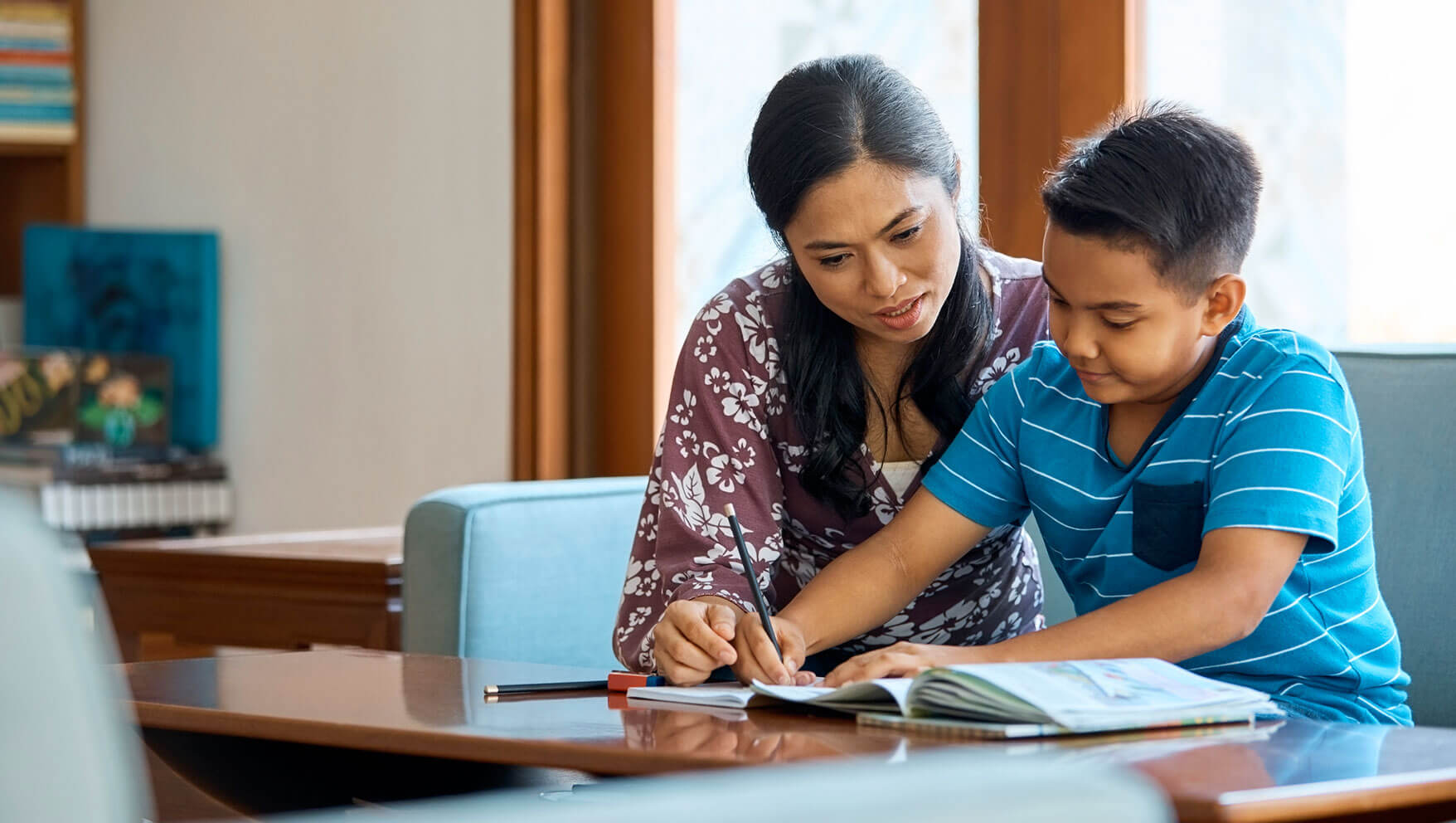Homeschooling a Child with Learning Disabilities

Making the decision to pursue Christian homeschooling is a tough one, but many Christian families feel like it’s important enough to embark on the journey. However, what happens when you discover that your student has learning disabilities?
Don’t Blame Yourself: Every Child is Different, and You Did Not Mess Up!
First of all, don’t blame yourself and don’t be scared! This is nothing you did or didn’t do when teaching your child. The reality is, no child is exactly the same – they are all fearfully and wonderfully made (Psalm 139:14). Every child is different, and a learning disability isn’t the last straw. It’s only a launching point.
If you are afraid, think about this: according to the Learning Disabilities Association of America, there are nearly 2.3 million students who are diagnosed with learning disabilities and 75-80% of those disabilities have to do with language and reading. These statistics may seem daunting to you, but many well-known people have spoken out in recent years about the challenges they had with their learning disabilities.
You are not alone and neither is your child. Many have dealt with this challenge and led very successful, productive lives.
The most important aspect of teaching a student with a learning disability is to accurately identify it. There are several ways to do this. You can request testing from a local school, or if it is more obvious, you can read up on different learning disabilities to determine where your student may be struggling.
Here is a list of specific learning disorders:
- Auditory Processing Disorder (APD) – Affects how sound that travels unimpeded through the ear is processed and interpreted by the brain.
- Dyscalculia – A specific learning disability that affects a person’s ability to understand numbers and learn math facts.
- Dysgraphia – A specific learning disability that affects a person’s handwriting ability and fine motor skills.
- Dyslexia – A specific learning disability that affects reading and related language-based processing skills.
- Language Processing Disorder – A specific type of APD that affects attaching meaning to sound groups that form words, sentences, and stories.
- Non-Verbal Learning Disabilities – May affect interpretation of nonverbal cues like facial expressions or body language and lead to poor coordination.
Get Support: Find Private Resources to Assess and Plan Your Approach to Learning Challenges
The most important thing you can do to further child development for your learner is to not do it alone. Support can come in several different ways:
Other Educators – Network with other homeschool teachers and ask them their techniques, what homeschooling resources they use, etc.
Resources – Don’t reinvent the wheel, learning disabilities have been around a long time and there are many homeschool resources that will help you. Some resources come with a cost, but others are free.
Local School Systems – The very essence of an educator is that they are advocates for children. Contact your local school district, explain your child’s needs, and ask them for suggestions, ideas, or if they have any formal testing available for your child to ensure their needs are accurately met.
The most important thing is to not do this alone. There will be many times when you will feel frustrated, not because you are upset with your student, but because you fear that you are not providing the best opportunities for them to learn and develop appropriately. Everyone who has worked with a student with learning challenges feels this type of frustration and fear.
But fear will not help. Learn to channel your fear and frustration into a drive to find answers, advocate, and deliver the best possible outcome for your student. Remember the love of God shown to you in Jesus and know that this perfect love is fully capable of driving away your fear (1 John 4:18).
Christian parenting is fun, but it can be a challenge when you are homeschooling. Remember that God wants you and your student to succeed. Keep encouraging scriptures and Bible verses around your home and classroom to help you when you wonder whether you are providing the best possible outcome for your student. Remember that these are the same challenges every educator faces whether they are teaching in a public, private, or homeschool setting.
And don’t forget that you are providing your student with the advantage of individualized instruction. You can intricately see where they are struggling and being challenged most. Utilize your network of educators to help instruct you on techniques and point you toward unique avenues of teaching that might work best for your student.
Remember your student is unique and that’s great! They may need to take a different road to get where they need to be, but with your help, they will reach it.
For resources on Christian homeschooling, teaching Bible stories to kids, and more, check out Minno’s collection of resources for Christian families!